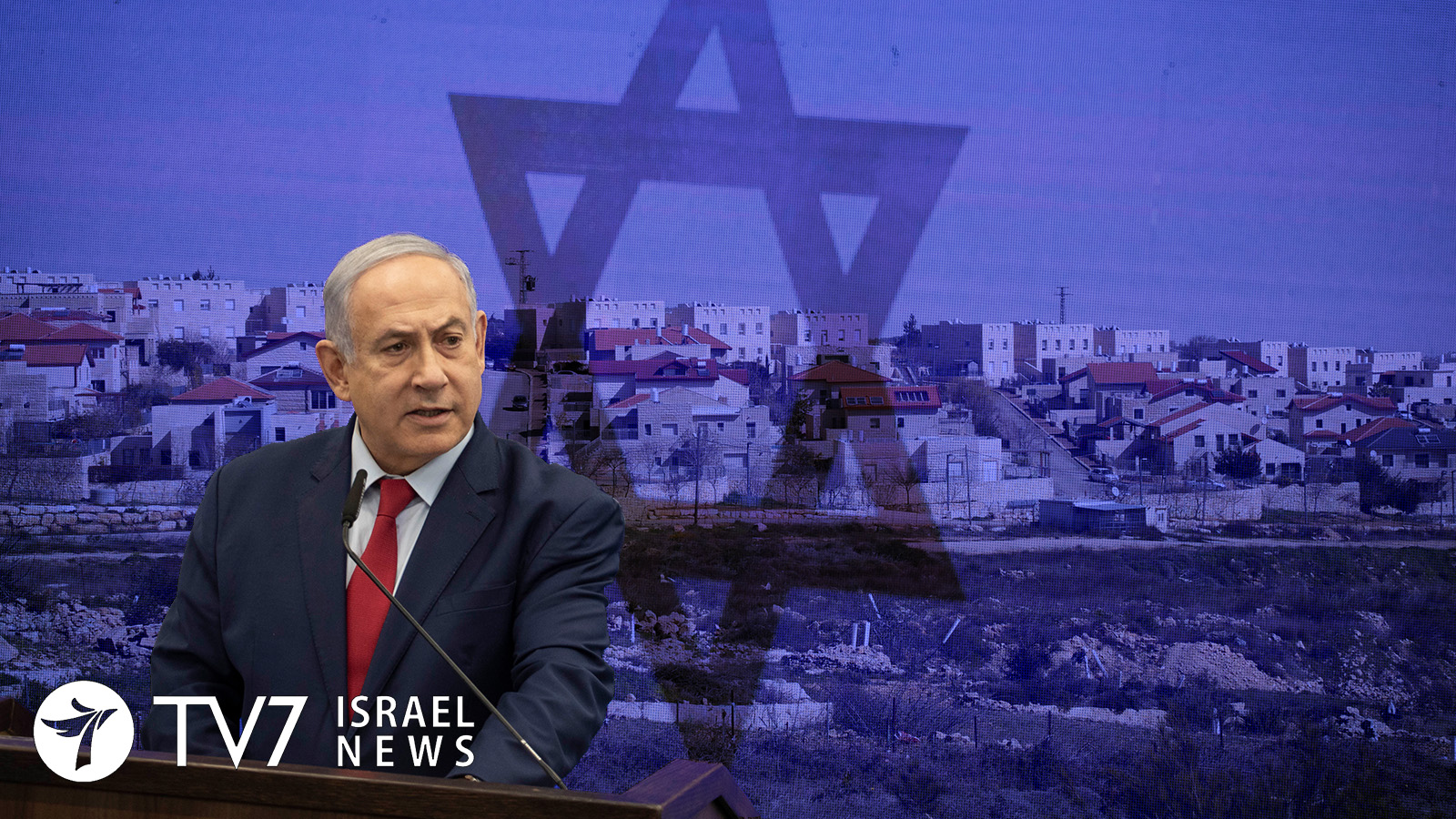Prime Minister Benjamin Netanyahu declared last night that he will seek to apply Israeli sovereignty over the Jewish communities in the West Bank, including the Jordan Valley and the Biblical districts of Judea and Samaria, and the northern Dead Sea. In what the Israeli leader announced to be “a dramatic press conference,” he emphasized that “out of respect for U.S. President Donald Trump and out of great faith in our friendship implementation of his aspiration would be postponed until after unveiling of the so-called “Deal of the Century’s” political dimension. Netanyahu also maintained he would exercise “maximum coordination with the United States” when carrying out the initiate, which he said “will require the establishment of a (government) coalition committed to this policy and principles and appropriate security deployment.“
Despite Netanyahu’s pledge to hold back until the release of the U.S. regional peace initiative, he asserted that conditions are ripe for the extension of Israeli sovereignty over the Jordan Valley immediately after the country’s national parliamentary election scheduled to be held less than a week from now on September 17th. Netanyahu underscored that the move would be contingent on his re-election, with a clear mandate from the citizens of Israel.
Several hours later, Prime Minister Netanyahu was about to deliver a speech at a political rally of his Likud faction in Ashdod, when he was suddenly rushed from the podium by his bodyguards amid the blaring of air raid sirens in the southern city and its neighbor Ashdod. Moments later, two missiles were intercepted by the Iron Dome aerial defense system; causing no reported injuries or damage. The IDF Spokesperson’s Unit confirmed that ‘Islamist Palestinians indiscriminately fired the two projectiles from the Hamas-controlled Gaza Strip toward civilian Israeli communities.
Responding to the cross-border rocket fire, Israeli “fighter-jets struck 15 terror targets in (the) northern and central Gaza Strip.” The IDF Spokesperson’s Unit said that the locations included “a military weapon manufacturing site,” “a naval force military compound and an offensive (infiltration) tunnel belonging to the Hamas terror organization.” The Israeli military emphasized in a statement that it “will continue operating against attempts to harm Israeli civilians,” while underscoring that the defense establishment “holds the Hamas terror organization accountable for (all) events transpiring in the Gaza Strip and emanating from it.” It is important to note, however, that Hamas officials informed Egypt that it was not behind the attack on the Jewish State. According to Palestinian sources, the Islamist organization vehemently insisted to Cairo that “rocket fire at this stage is contrary to the Palestinians’ national interest.” An Israeli intelligence source told TV7 that Egypt later conveyed this message to Jerusalem. As such, the current assessment among Israel’s security leaders is that the Iranian-backed Islamic Jihad was behind the missile-launch, even though so far there have been no claims of responsibility [so far].
Senior Palestinian Authority officials angrily deemed Prime Minister Netanyahu’s Jordan Valley election pledge as a blatant violation of international law. Chief Palestinian Negotiator Saeb Erekat went even further, by claiming that the Israeli leader’s annexation plan was intent on “keeping Palestinians in their small towns and villages as prisoners without any freedom,” that is paramount to a war crime.
In addition to the Palestinian condemnation, the Arab League convened an emergency session. The Secretary General Ahmed Aboul Gheit declared that the 22-member states consider the statements “as undermining any chances of progress in the peace process, completely eradicating its foundations.” He added that the council “announces its determinations to follow up with these new, aggressive Israeli statements, as well as its readiness to undertake all procedures, legal and political actions to resist this Israeli policy, which aims to increase conflict and violence in the region and the world.” Aboul Gheit then stressed that “Arab action will be taken with the security council, the General Assembly of the UN, international organizations, and members of the international community.”
